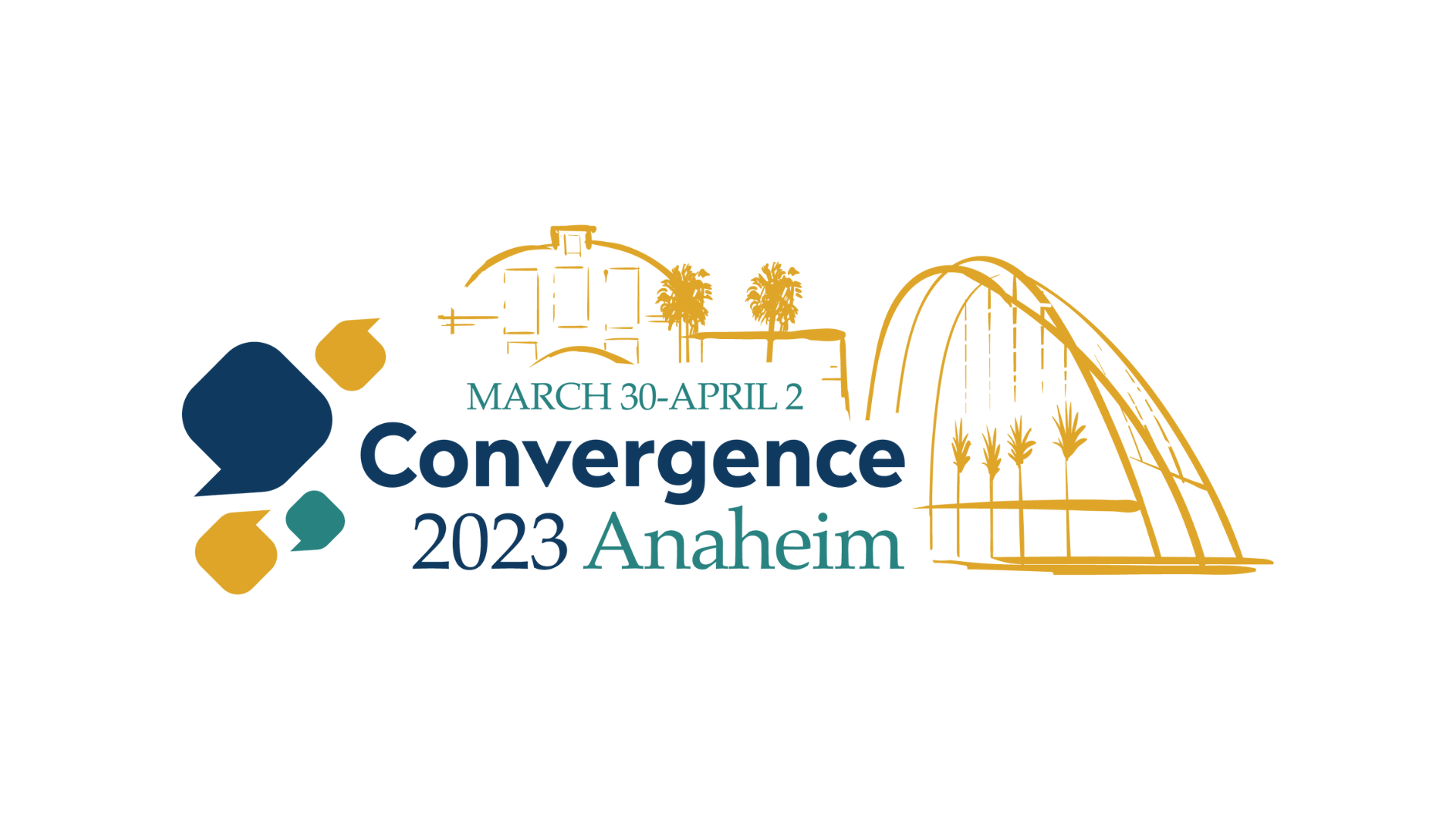
2023 Convergence Call for Proposals due Sept. 30, 2022!
Are you passionate about sharing your knowledge and helping people? Are you a subject matter expert? The California Speech Language Hearing Association (CSHA) is seeking content leaders to submit session proposals for Convergence 2023 in Anaheim! The event will be held March 30-April 2, 2023.
CSHA is looking for dynamic presentations that offer participants everything from useful information and how-to demonstrations, to explorations of key issues and evidence-based resources. We’re looking for creative, engaging and thought-provoking speakers who represent the breadth and depth of our profession, our work and our community.
Call for Proposals Deadline
All proposals must be submitted by Friday, Sept. 30, 2022, at 11:59 p.m. PDT.
DETAILS
Course Description
Please include a description of how your proposed session may be related to issues of high priority to CSHA, including the board’s strategic goal of addressing diversity, inclusion and culture (maximum 150 words)
Ethics & Supervision Sessions
There are ASHA professional development requirements for ethics and supervision content. See if your session meets those requirements HERE. All ethics and supervision sessions will be listed separately, as required by ASHA. Sessions that are determined to meet the ASHA requirements, will be notified separately.
Proposal Requirements
Each session proposal must include the following:
- A title with a limit of no more than 100 characters. Does the title of your session accurately depict the content of your session? Does it inspire the reader’s interest?
- Three (3) Learner Outcomes
- Please incorporate easy-to-measure action verbs such as: perform, identify, list, define, describe, explain, summarize, differentiate, specify, compare, and contrast.
- Please do not include verbs that are difficult to measure such as: “understand,” “become familiar with,” or “appreciate.”
- A 150-word description for the online conference program. Please ensure that the description accurately depicts the content of the session.
- A program summary and description. Word limit: 750 words. The summary should include the purpose, procedures and results. You are encouraged to include a time-ordered agenda. This information is not published, but is submitted to ASHA for CEU approval.
- A list of three (3) journal references and/or practices that shows the supporting evidence behind your topic.
- A completed submission and disclosure policy questions for each presenter.
- A completed presenter agreement.
Presentation Types
The primary presenter will be asked to choose one of three presentation types
Courses (three hours)
These sessions typically discuss published intervention approaches, models, and practices.
Seminars (90 minutes)
These sessions typically discuss published intervention approaches, models, and practices, but are more conducive to the 90-minute format.
Poster Sessions (90 minutes)
A poster session is the presentation of research information in the form of a paper poster that conference participants may view. There will be 10-12 posters presented during the session. Poster sessions may be presented by students, SLPAs and professionals. The maximum poster size is 44.5” tall by 91” wide.
Student Research Presentations (15 Minutes)
These 15-minute presentations typically discuss completed or nearly completed research by students as part of their thesis or culminating projects. A college professor facilitates the student presentations. Typically, there are five to six student presentations given within a 90-minute session. Student presentations are oral and typically include a PowerPoint presentation.
Content Areas
In the Call for Sessions process, you will be asked to choose the content area which is most closely aligned with your session. There are 10 content areas:
-
Audiology
- Topics related to the diagnosis and treatment of hearing loss and balance disorders in adults and children.
-
Autism & Related Issues
- Clinical or educational services (diagnosis, assessment, planning, and treatment), and education, administration, and research involving persons with Autism Spectrum Disorder.
-
Clinical Issues
- Topics related to treatment and assessment issues related to specific communication disorders, such as fluency, speech-sound disorders, etc. Service delivery includes teletherapy and applications.
-
Cultural and Linguistic Diversity (Client & Family Centered)
- Given our increasingly diverse population, cultural and linguistic competency may impact assessment and intervention of clients and families. Cultural variables may be impacted by age, gender, occupation, sexual orientation, disability, socioeconomic status, religious beliefs, and ethnicity. Linguistic diversity may affect vocabulary, dialect, beginning literacy and other aspects of communication.
-
Language & Literacy
- Strategies for improving students’ language and literacy skills including phonemic awareness, morphology, syntax, comprehension, understanding vocabulary, spelling or written expression.
-
Medically Based Issues
- Topics related to health care, diagnosis and treatment of a wide range of speech, language, cognitive, and swallowing disorders including neurological events, such as traumatic brain injury, stroke, seizure, or cancer. Issues related to aphasia, dysarthria and voice disorders included.
-
Professional Issues (Includes Diversity, Inclusion & Culture*)
- Topics impacting service delivery, case management, teletherapy and professional practice including issues concerning the diversity, inclusion and culture of our profession.
-
Special Populations
- Communication intervention involving speech sound interventions for clients with concomitant health conditions or nonmainstream language backgrounds. Examples include those with cochlear implants, cerebral palsy, Down Syndrome, progressive disorders, and those needing augmentative and assistive communication support.
-
Swallowing and Feeding Disorders
- Topics related to procedures and instrumental techniques used to assist in diagnosis and management of swallowing and feeding disorders including cognitive, communication, behavioral, and psychological factors contributing to dysphagia and/or feeding care.
-
Supervision, Leadership & Management (Includes Diversity Inclusion & Culture)*
- Topics related to the supervision process, leadership and management in various settings including academic, educational, health care and our professional association.
*“Diversity, Inclusion and Culture” has been identified by the CSHA Board of Directors as one of two Priority Impacts of the association’s ongoing strategic plan.
NOTE: The following topics have been identified as high-demand for Convergence 2023.
-
Audiology
-
Cultural and Linguistic Diversity (Client & Family Centered)
-
Ethics
-
Medically Based Issues, including aphasia
-
Professional Issues: Teletherapy and applications
-
Special Populations: Augmentative & Assistive Communication (AAC)
-
Supervision, Leadership and Management: Ethics and Case Management
